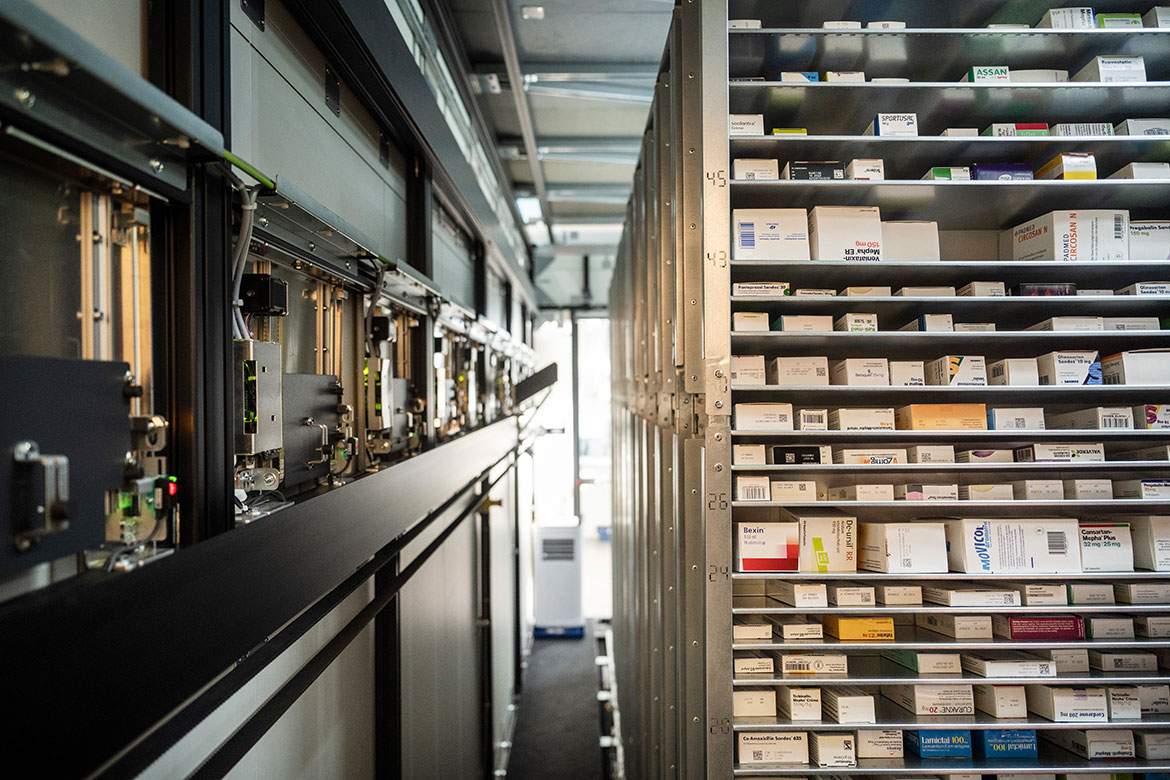ANTIBIOTIC RESISTANCE
Rescue SMEs for new antibiotics
Given the meagre profit margins, the race to develop new antibiotics against resistant bacteria fails to excite big pharma. Financial analysis reveals that the SMEs working on it need support to meet their objectives.

Even if pharmacy shelves are full of drugs, we still need to keep producing new antibiotics. | Photo: Christian Beutler / Keystone
When a company develops new products, it generally aims to market them at scale. This is not the case in the antibiotics sector. Every dose of these medicines administered increases the risk of resistance emerging in bacteria. Such antibiotic-resistant bacteria cause more than a million deaths around the world every year. So it is imperative that we limit the use and hence the sale of antibiotics only to necessary cases.
As this renders antibiotics unprofitable, big pharmaceutical outfits have shied away from developing new ones, leaving it to small and medium sized enterprises (SMEs). But SMEs struggle to stay afloat unless they receive external funding, especially during the marketing phase, when their need for cash grows in the absence of sufficient revenue to cover their costs. This has been highlighted by a pluri-disciplinary team at the Geneva Graduate Institute.
One member of this team is the finance expert Nadya Wells, who worked on the analysis of the commercial failure of an antibiotic developed by an SME in the USA between 2004 and 2019. Having access to its financial reports allowed her to identify the difficulties faced in developing new antibiotics. SMEs like this one face a cruel absence of financial security over the long term. There are a number of financing models that may address this, e.g., a fixed annual payment or subscription system, whereby the State decides to outlay a specific sum to develop a new antibiotic without linkage to the number of doses administered thereafter.
“Multiple countries, like the UK, Sweden and also Japan are in the process of rolling out these kinds of measures that may re-establish confidence in the industry and investment circles”, she says. As of today, the researchers from the Institute are the only ones to have published a case study of this kind. To know whether these incentive schemes bear fruit, further studies will need to be conducted on other SMEs producing antibiotics.




